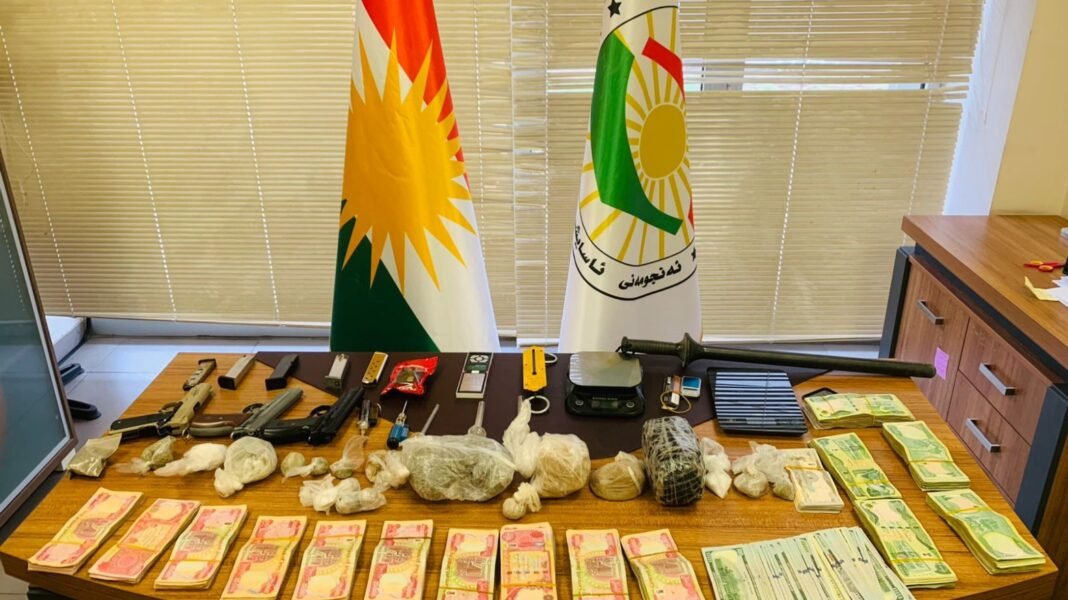Kurdistan drug arrests have surged past 1,000 in 2025 as the region intensifies its war on narcotics. Officials confirmed this troubling number, which averages nearly eight arrests per day. The increase comes as authorities expand efforts to stop drug trafficking and abuse across multiple provinces.
In Erbil and Duhok, security forces arrested 612 people within four months. This includes 283 users and 329 traffickers. Meanwhile, officials in Sulaimani, Halabja, Raparin, and Garmiyan arrested 388 suspects for similar charges. That number includes 173 users and many traffickers.
Authorities have also seized huge amounts of illegal substances. They recovered 550 kilograms of narcotic pills and 70 kilograms of Captagon. Additionally, they confiscated over 8,300 blister packs and loose pills from dealers and smugglers.
Kurdistan drug arrests highlight a serious public safety threat. Iraq, especially along borders with Iran, Syria, and Turkey, serves as a transit route. Smugglers use these paths to move drugs into Europe, increasing the risk for local communities.
Since 2003, Iraq has faced growing challenges in combating drug crimes. The fall of Saddam Hussein left borders weaker and control reduced. Now, the Kurdistan Region sees the results of that instability in its daily fight against drug networks.
Prime Minister Masrour Barzani recently stressed the urgency of this issue. He called drugs an “endemic” problem in Kurdistan. He also urged the global community to work closely with Erbil. His goal is to eliminate drug use and trafficking through joint action.
Meanwhile, a report by the United Nations Office on Drugs and Crime warned of a sharp increase in Captagon use. This report included data from across Iraq, including Kurdistan. Captagon is a powerful stimulant that continues to spread quickly among young users.
According to official sources, one in five inmates in the Kurdistan Region faces drug-related charges. This number reflects the high level of drug crime and the government’s serious response.
Kurdistan drug arrests will likely keep increasing unless deeper reforms take hold. Stronger laws, better border control, and international support remain essential for success.


